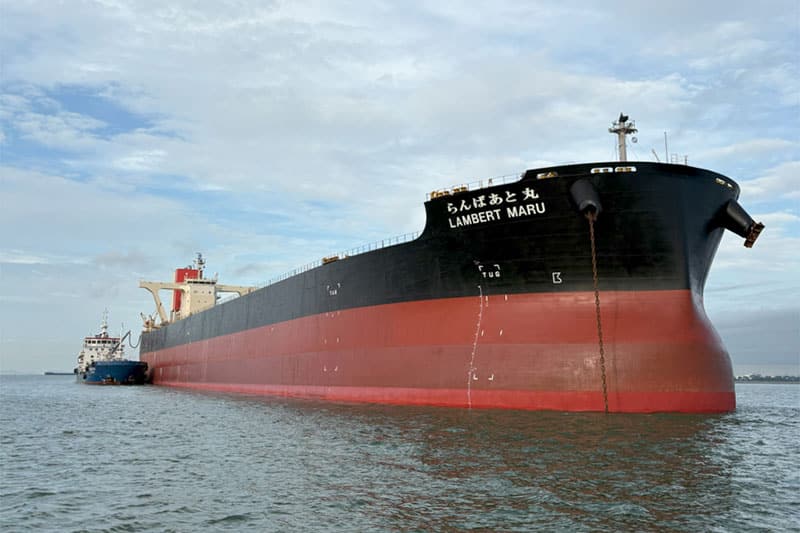MOL’s bulker embarks on biofuel-powered voyage for Anglo American
Lambert Maru Embarks on Biofuel-Powered Journey

The Lambert Maru, a Capesize bulk carrier operated by Mitsui O.S.K. Lines (MOL), has commenced a significant biofuel-powered voyage for Anglo American, a leading global mining firm. The vessel set sail after receiving biodiesel-blended marine fuel in Singapore on September 14. This initiative is part of MOL’s commitment to achieving net-zero emissions in maritime transportation through its Blue Action Net-Zero Alliance program, launched earlier this year.
Innovative Fueling and Emission Reduction
The Lambert Maru is utilizing a B30 blend of biodiesel, which consists of 30% biomass derived from organic materials, such as waste cooking oil. This fuel blend is certified under the International Sustainability & Carbon Certification (ISCC-EU) and is expected to reduce CO2 emissions by approximately 30% compared to traditional fossil fuels during its voyage. The greenhouse gas (GHG) reduction achieved through this journey will be digitally certified and allocated to Anglo American, allowing the company to incorporate these reductions into its Scope 3 emissions reporting.
MOL’s initiative is seen as a progressive step in the maritime industry’s efforts to decarbonize. Recent studies by the UCL Energy Institute and UMAS highlight the potential of voluntary insetting schemes, like the one implemented by MOL, to facilitate shipping’s transition towards lower emissions. These schemes can stimulate value chain thinking and provide early market signals that are crucial during the energy transition phase. The analysis emphasizes the importance of incorporating robust safeguards to ensure the long-term viability of alternative fuel options in the maritime sector.
Future Implications for Maritime Sustainability
The Lambert Maru’s voyage marks a pivotal moment in the shipping industry’s journey toward sustainability. By adopting biofuel technology, MOL is not only contributing to the reduction of greenhouse gas emissions but also setting a precedent for other shipping companies to follow. The successful implementation of such initiatives could lead to broader acceptance and integration of sustainable practices within the maritime sector.
As the industry faces increasing pressure to address climate change, the Lambert Maru’s biofuel-powered journey serves as a beacon of innovation. It demonstrates the potential for shipping companies to leverage alternative fuels and contribute to global sustainability goals. The collaboration between MOL and Anglo American exemplifies how partnerships can drive significant advancements in reducing the environmental impact of maritime transportation.
